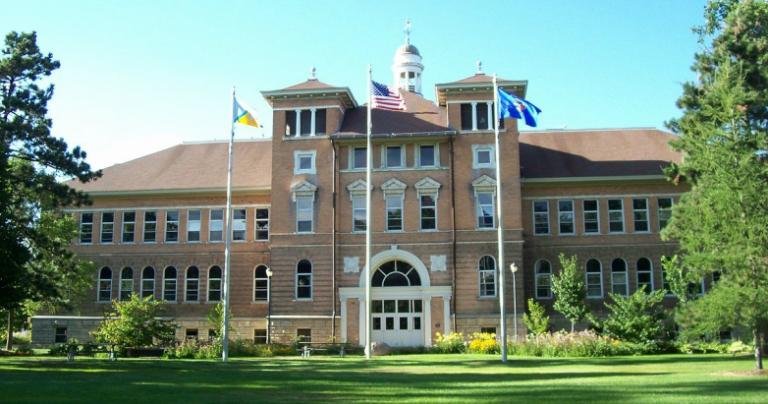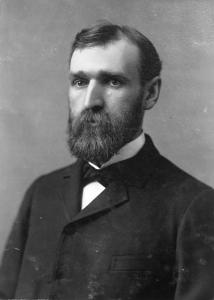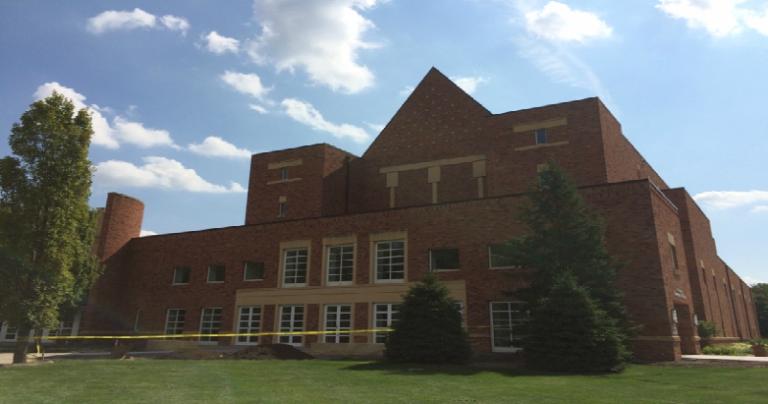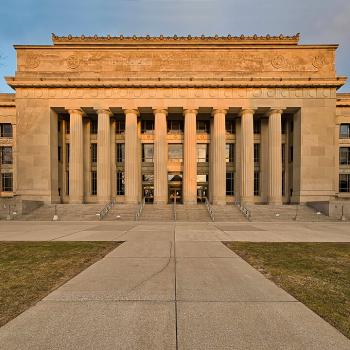In my experience, most college professors pay little attention to what’s happening in higher education beyond their own discipline or institution. So last week it was remarkable how many colleagues came up and asked me, “What happened at UW-Stevens Point?”
They were referring to one of the 26 campuses in the University of Wisconsin system, which announced last Monday that it was planning to address a $4.5 budget deficit by a combination of two strategies: “adding or expanding 16 programs in areas with high-demand career paths as a way to maintain and increase enrollment” and “shifting resources from programs where fewer students are enrolled,” to the point of cutting several majors.

What will grow? Business programs like marketing, management, and finance, and STEM programs like chemical engineering, computer information systems, and aquaculture/aquaponics.
What will go away? Virtually every art, humanity, and social science major that isn’t directly connected to a professional “pathway.” Not just the languages (French, German, and Spanish at UWSP) and fine arts (art and music literature) programs that have been the first to go when smaller schools make such cuts. Stevens Point students would no longer be able to major in English, philosophy, political science, sociology, or history.
We can quibble about the exact definition of “the liberal arts,” but no reasonable person would leave my discipline off that list. Yet UWSP chancellor Bernie Patterson claimed that “we remain committed to ensuring every student who graduates from UW-Stevens Point is thoroughly grounded in the liberal arts, as well as prepared for a successful career path.” Provost Greg Summers (an environmental historian!) claimed that “UW-Stevens Point is committed to strengthening our academic offerings while improving our liberal arts core to ensure students graduate with the knowledge and skills they will need to be successful in the future.”
I would laugh, if I weren’t so angry and sad.
I’m angry at the state government of Wisconsin. The UWSP press release blamed declining enrollment and tuition revenues — a familiar refrain across higher ed — but said nothing about the fact that state funding for the UW system has been slashed almost $800 million since 2011. (Gov. Scott Walker did propose restoring over $100 million in the newest budget, but this is the same governor who pushed for changes to faculty tenure that would make it easier to shrink and shutter programs.) Just last fall, UW-Superior suspended several majors, including political science, sociology, and theater.
This in a state that gave its name to an early 20th century progressive ideal of expanding higher education for the public good.

In the 1905 address often pointed to as the origin of the “Wisconsin Idea,” UW president Charles Van Hise insisted that “I shall never be content until the beneficent influence of the University reaches every family of the state.” Less often quoted is this line: “The advantageous relation between the university and government may be illustrated by the departments of history, political economy, political science, and sociology.”
So I’m not only sad for the professors who will lose their jobs, but for the students whose education will be impoverished. I’m especially dismayed that the study of history, political science, and sociology is being scorned by democratically-elected governments that are rendering such fields less and less available to the working- and middle-class Americans who are supposed to be served by public universities.
In a sense, Stevens Point is returning to something more like its original identity. Founded as a teachers college in 1894, liberal arts degrees only arrived after World War II, then expanded as the “Wisconsin State” network merged in the 1970s with the larger UW campuses. (Like the world-famous one in Madison where my grandfather majored in English before becoming an attorney and naval officer.) It’s a good reminder that while I teach history at a liberal arts college, that model is not actually ubiquitous in the past, present, or future of American higher education.
So while Bethel is only three hours away from Stevens Point and is part of the same U.S. News college ranking category, I want to be selfish and reassure myself, “At least you teach at a Christian liberal arts college.” As if nothing like the Stevens Point solution could happen at Bethel University or any other member of the Council for Christian Colleges & Universities.
It already is.

Even though Bethel’s newest budget crisis is unlikely (let’s hope) to result in the elimination of core liberal arts departments like mine, the language of the Stevens Point press release sounds so very familiar…
First, the notion that the liberal arts can survive without majors in the arts, humanities, and social sciences. Because, gen ed.
Now, I do think we have a robust curriculum: every traditional undergraduate student at Bethel needs to fulfill 49-50 credits of general education, out of the 122 required for graduation. And not just in slapdash category distribution requirements: a history course here, a language there, with some math and science thrown in. We have a thoughtfully-constructed curriculum in which core courses (most of them interdisciplinary) set up students to continue their studies of personal development, global perspectives, biblical foundations, and math, science, and technology via options from a wide variety of disciplines. Even if I imagine a nightmare scenario where I’m the only historian left in a “liberal arts college” that has zero history majors — and where my teaching load leaves no time for research or public scholarship — I would still want to teach history to engineering, social work, marketing, and nursing majors.
But even our curricular core has been eroding. Only three gen ed requirements must be met at Bethel, leaving students free to transfer in courses that have not been taught with the Christian liberal arts in mind and have often been taken too early in the student’s development (e.g., fulfilling a sophomore-level exploration of modernity in the 19th and 20th centuries by taking AP US History as a 16- or 17-year old). Once they get here, students can double-count three more major field courses toward gen ed. In principle, I’m okay with that flexibility, except that more and more of those courses are being taught by faculty in professional programs, rather than those of us in the core disciplines of the liberal arts.
But this is a relatively small debate. Let’s not let it distract us from the larger problems evident in the Stevens Point statement.
Start with the assumption that funding should follow short-term enrollment trends. If a regional public university can’t resist this logic, a liberal arts college at least should be able to find ways to maintain a strong core of disciplines asking questions about permanent things. All the more so if it’s a Christian institution that believes that all truth is God’s truth, that education aims at the formation of the whole person, and that we should seek to restore a fallen world — not just serve at the beck and call of its often unjust political and economic institutions.
Schools like mine will pay lip service to all those ideals… and simultaneously take all sorts of actions that diminish the appeal of the arts, humanities, and social sciences. Placing them lowest on the list of priorities when it comes time to raise funds and improve facilities. Not telling their stories in the midst of new marketing initiatives. Bloating science and professional majors to such sizes that students can only add a second major or even a minor if they’re willing to pay for an additional semester or two. According to my calculations, the average size of an undergraduate major in Bethel’s College of Arts and Sciences (weighted by relative enrollment in different majors) is now 62 credits. (English literature, history, philosophy, political science, and sociology are all below 40.)
That’s based on our 2009-10 and 2017-18 academic catalogs and a report from our institutional data folks. Using the same sources, here are the shares of our CAS students majoring in the fields being proposed either for elimination or addition/expansion at Stevens Point.
| % of Bethel CAS Students in Fall 2009 | % of Bethel CAS Students in Fall 2017 | |
| Bethel equivalent of majors proposed for elimination at UWSP | 11.7% | 8.2% |
| Bethel equivalent of majors proposed for expansion/addition at UWSP | 16.8% | 21.0% |
So while our president, provost, and deans would surely (and honestly) disclaim any desire to follow the Stevens Point pathway, we’re already headed in that direction. I work in a College of Arts and Sciences where nearly 60% of students have at least one major connected directly to a professional field like education, engineering, business, social work, nursing, or athletic training. (That doesn’t include all the biology, chemistry, biochemistry, and biokinetics majors who chose those programs primarily because they fit well with pre-professional tracks in medicine, dentistry, physical therapy, etc.)
And why wouldn’t our students choose such courses of studies? For several years now, we’ve been using much the same language as Stevens Point’s leaders, whose “recommendations recognize a growing preference among students for majors with clear career pathways” — one recommendation being to keep humanities/social science-connected programs only if they “have clear career pathways.”
(In 2015, Scott Walker tried in vain to strike the language of the “Wisconsin Idea” from the UW mission statement. “The focus,” he explained, “would be honed in, in particular to look at making sure that we prepare individuals in this state… for the jobs and opportunities that are available in the state.”)
I first heard the “pathway” idea about five years ago, in the wake of our last fiscal crisis. The argument was that — coming out of the Great Recession and given the popular narrative about “debt crisis” and “cost disease” afflicting higher education — prospective students and their parents needed to be reassured that there was a clear “pathway” leading to and through Bethel, then into a well-paying, stable career.
A simple Google search will show how much we’ve assimilated that language. I’d like to put this all at the feet of our recruitment and marketing folks. But our faculty have designed and approved several new majors in the last few years, and almost all of them have been built around this notion of a “clear career pathway.”
At best, I think “pathway” talk of this sort is kindly meant but ultimately misleading. It tells frightened people what they want to hear, rather than the complicated truth.
Pathway talk says, “Our tuition is expensive, but it’s worth it because it will buy a diploma that will immediately earn you a high-paying job with long-term employment security.”
The truth that any Christian liberal arts college ought to communicate, compassionately but candidly, is quite different. Something like the following… though probably more succinct:
Our tuition is high, but engaging in four years of patient study in a variety of fields with highly-trained faculty is the most valuable investment you’ll ever make, resulting in the transformation of your heart, mind, body, and spirit at one of the key stages of your life.
But it will not buy certainty about your future employment, which is bound to have its ups and downs. In fact, most of the knowledge and some of the skills that you would pick up in a professional program would likely be obsolete before your 50-year career has concluded its first decade.
That’s exactly why you ought to value a liberal arts college’s combination of general education and small, intellectually rigorous majors that open up not one, but many professional pathways. For you’ll learn the skills in reading, research, quantitative and qualitative analysis, critical thinking, problem solving, writing, and speaking that will let you continue to learn throughout your working life, and after.
All that, and you’ll be more curious, more thoughtful, more open-minded, more culturally responsive, more interested in other people (and interesting to them), more humble, and more comfortable with complexity and mystery. Which will show up in your relationships with your employer, clients, and co-workers… but also in your relationships with your family, community, church, nation, and the larger world.
But that’s not as pithy as talking about “pathways,” whose seductive message risks a deeper danger for students like ours: It encourages impressionable young Christians to take a distorted view of vocation. Our primary message should be that a Christian liberal arts education will help you hear God’s calling on your life and shape you to be the person you’re meant to be — not that it will train you for the salaried work that will make up a relatively small fraction of your time in this life.
If the Stevens Point proposal goes through, the liberal arts there will die from something like blunt force trauma. At Christian colleges like mine, the death is coming by a thousand cuts.
But the result will be the same.













